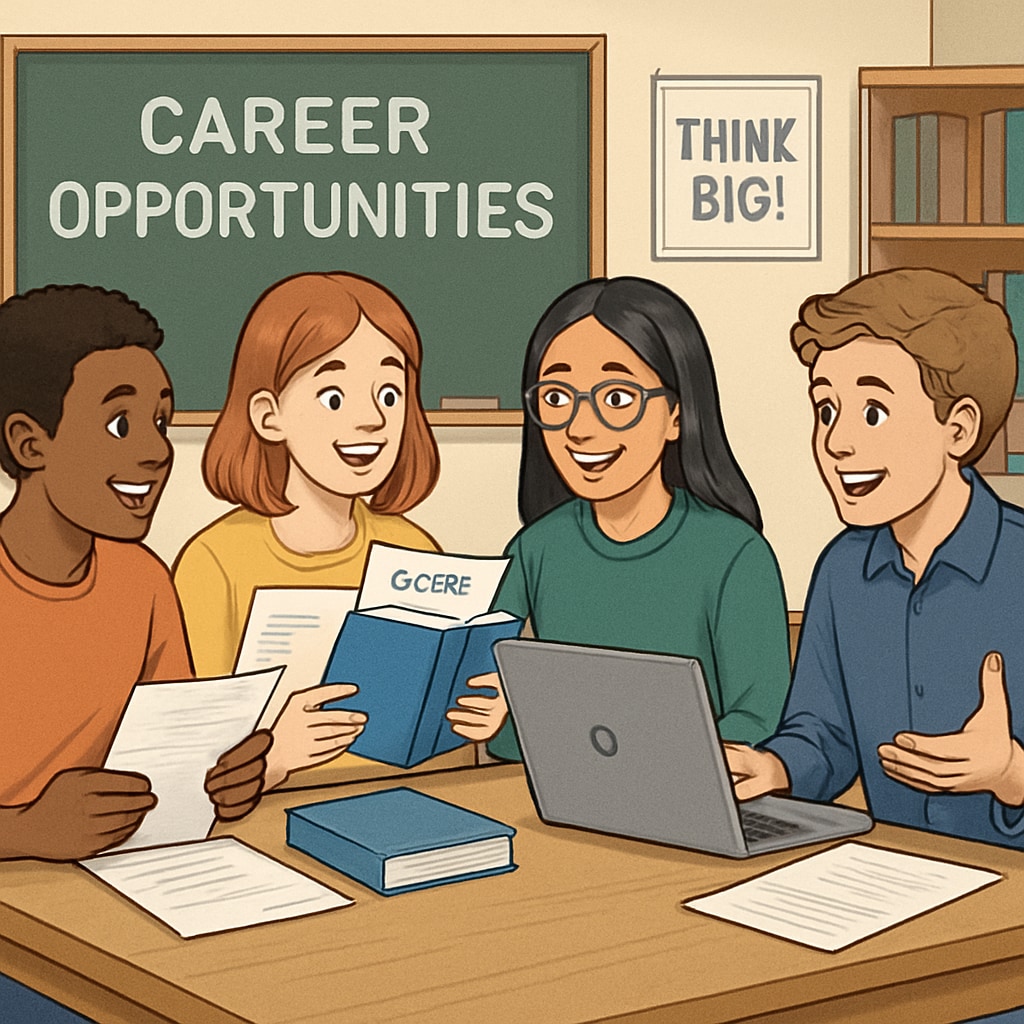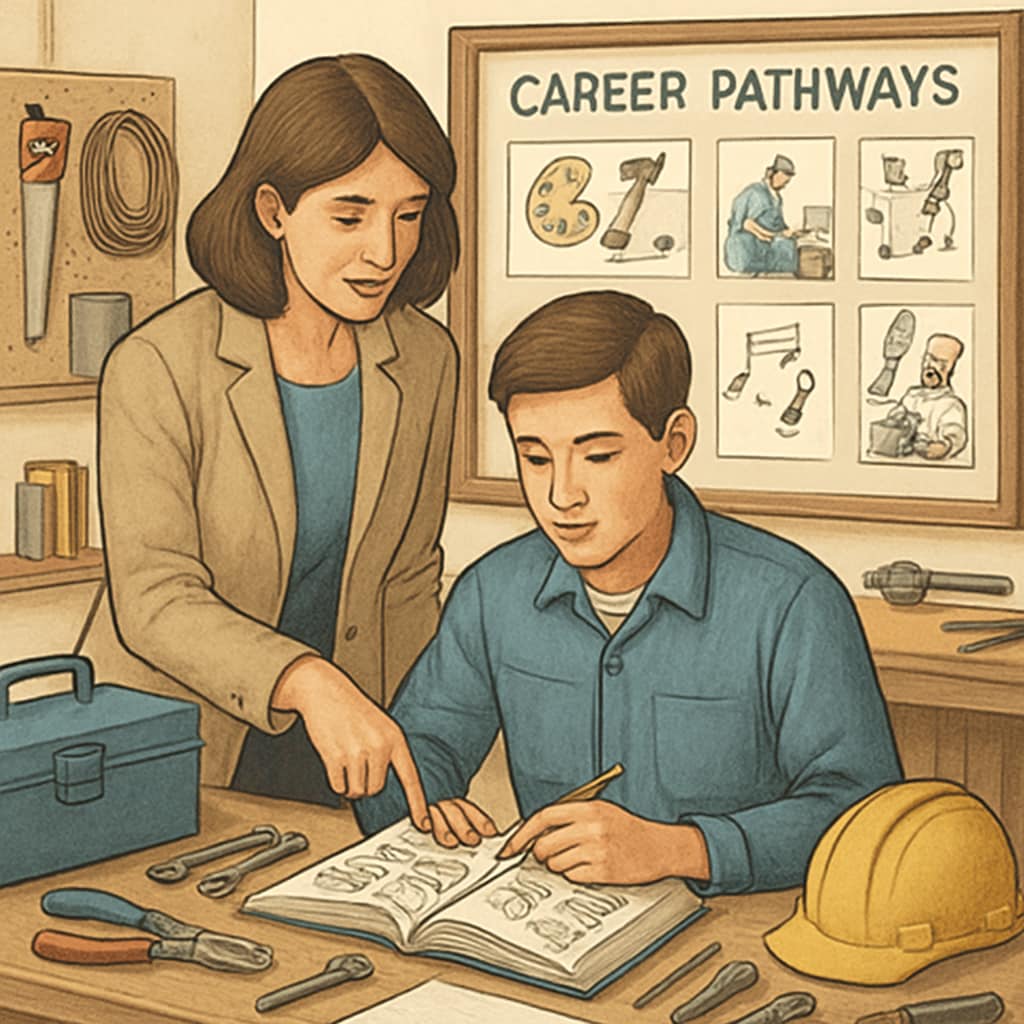The pressure associated with GCSE results often leads to significant academic worries and concerns about career prospects. Students, parents, and educators alike frequently view these grades as the ultimate measure of achievement and a determinant of future success. However, is it time to question whether our reliance on GCSE results as a singular benchmark is beneficial to young learners? This article delves into the implications of GCSE performance on academic and career pathways, while advocating for a more holistic approach to defining success in K12 education.
How GCSE Results Influence Academic and Career Pathways
GCSE results are undeniably pivotal in shaping a student’s immediate academic trajectory. These grades determine admission to A-level programs, vocational courses, or apprenticeships, which in turn influence university options and career choices. For example, competitive institutions often require high grades in specific subjects, making GCSE results a gateway to prestigious opportunities.
However, this emphasis on grades can exacerbate academic worries. According to a 2022 report by the UK’s Office for National Statistics, 65% of students reported heightened stress levels during exam periods. This pressure not only affects mental health but may also limit students’ ability to explore alternative talents and passions.
Furthermore, while GCSEs are important, they are not the sole indicators of potential. Entrepreneurs like Richard Branson and academics who found success through non-traditional pathways serve as reminders that a single set of exam results does not define a person’s future. As a result, educators and policymakers must consider alternative frameworks that emphasize diverse skills and long-term growth.

Redefining Success in K12 Education
To reduce the overwhelming focus on GCSE results, schools and parents can promote a broader definition of success. This involves recognizing achievements beyond academics, such as leadership, creativity, resilience, and interpersonal skills. For instance, extracurricular activities like sports, arts, and volunteering develop competencies that are equally valuable in the workforce.
Moreover, alternative educational pathways such as apprenticeships and vocational training are gaining traction. These options provide hands-on experience and industry-specific skills, offering viable career routes for students who may not excel in traditional academic settings. According to Britannica, vocational education equips learners with practical expertise that aligns with labor market demands, often leading to high employability rates.
Another critical aspect of redefining success lies in fostering emotional resilience. By teaching students to view setbacks as learning opportunities rather than failures, educators can help them develop a growth mindset. This approach not only mitigates the impact of disappointing results but also prepares students for the inevitable challenges of adulthood.
Practical Strategies to Support Students
Parents and educators play a crucial role in alleviating academic pressures and guiding students towards a balanced perspective on success. Here are some actionable strategies:
- Encourage self-reflection: Help students identify their strengths, interests, and long-term goals, regardless of their GCSE results.
- Promote diverse learning opportunities: Introduce students to creative pursuits, community projects, and internships to broaden their skill sets.
- Provide emotional support: Create a safe space for students to express their concerns and seek guidance.
- Highlight alternative pathways: Offer information about vocational programs, gap years, and entrepreneurial ventures.

By implementing these strategies, we can help students view GCSE results as one piece of a larger puzzle rather than the definitive measure of their worth or potential.
Conclusion: Broadening the Lens of Success
While GCSE results undeniably play a role in academic and career planning, their significance should not overshadow the broader spectrum of student capabilities. By addressing academic worries and offering support, we can empower young learners to embrace a more nuanced view of success. As we move forward, it is imperative to challenge traditional notions of achievement and cultivate an educational environment that values diverse talents and lifelong growth.
Ultimately, success in K12 education should be about equipping students with the skills, confidence, and mindset to thrive in an ever-changing world. By taking a holistic approach, we can ensure that every student finds their unique path to fulfillment and contribution.


